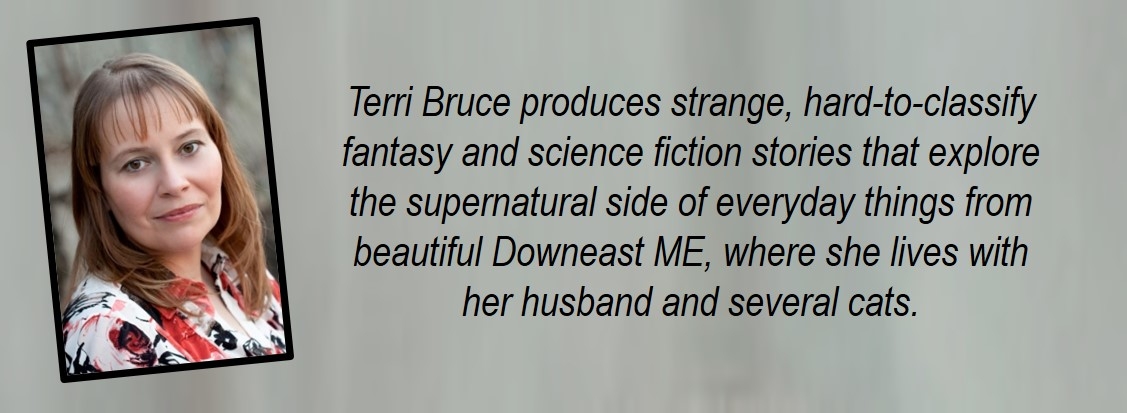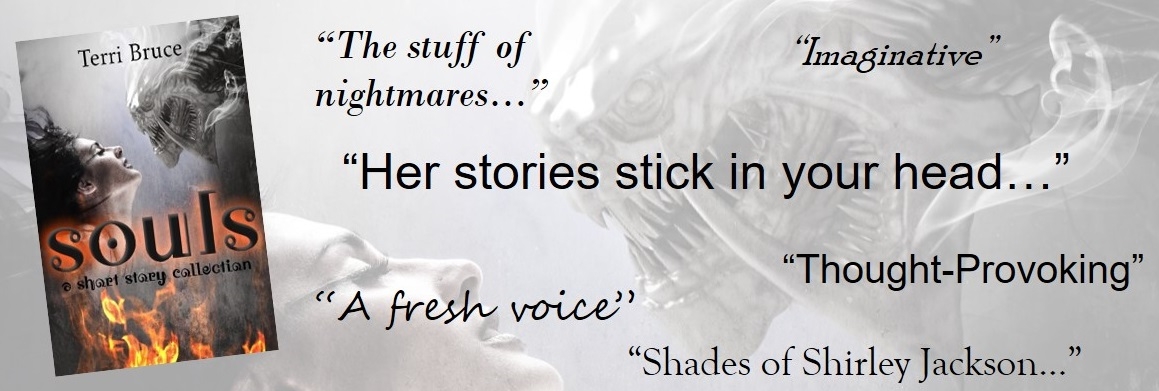Blog: The Doors of Perception
My grandmother always had a way with language, had, for as long as I could remember, described things in her own, fanciful way.“I was walking the other day…” she would say.
“Really? You were walking?” my sister and I would tease her, knowing full well she hadn’t gotten out of her wheelchair for several years.
“Well, I was sitting, the nurse was pushing, but you know what I mean…” she’d say with a dismissive wave of her hand and that Cheshire grin of hers that indicated she thought she was being particularly funny or was having a laugh at someone’s expense. She referred to people younger than herself as “kids” – even when they were in their sixties. She never called me and my sister “children” or “kids”; we were “monkeys.” She referred to our belongings as “grip” (as in, “get your grip (stuff), we’re going now”). I think it may have been her colorful “phraseology” that instilled in me the love of words and the desire to be a writer. She showed me how words can make the ordinary and mundane magical and exotic.
Having grown up with this kind of linguistic slapstick, my sister and I saw nothing extraordinary in it. More literal-minded people saw it differently. One physical therapist told me outright that my grandmother “lied” and “made things up.”
“No, that’s just the way she talks,” I insisted. But as gram got older, caregivers on the lookout for signs of diminished mental capacity saw these “slips” in language as signs of dementia that gave them great concern.
It was often hard to tell who was right. Was she just being fanciful, or was it a cunning cover-up of a serious problem? The elderly can be insidiously clever at hiding symptoms of failing health. My grandmother was almost completely blind by the time anyone realized she was having trouble with her eyes. She seemed unable to tell bills from junk mail, passing both on to us with equal impatience. A sloppy, childish signature scrawled on documents seemed to indicate failing faculties. The nursing home staff said these were all clear indications of dementia. However, the day my grandmother completely missed the paper and signed the desk, I knew it wasn’t dementia—after all, she knew the difference between a desk and a piece of paper and could recognize both. I suspected she couldn’t see where the paper ended and the desk began. A routine eye exam confirmed severe cataracts—which were easily corrected with minor surgery. There were no more “paper problems” after that but questions still remained about her mental state.
Right up until the end it was a constant fight to keep her from being labeled as having diminished mental capacity or outright crazy by the nursing home staff. I am haunted by the possibility that the “experts” were right and that I was wrong. She hid her blindness for so long, what else might she have kept from us? Was my insistence that her language was purposely fanciful, rather than mistaken, due to a refusal to accept that my grandmother was getting older and slipping away from me? I will always wonder.
When I sat down to write SAY IT THREE TIMES, this dichotomy between how I viewed what my grandmother was saying (poetic license) and how professional elder care staff viewed it (dementia) became central to the character of the Detective. I choose to believe that my grandmother’s unique way of expressing herself was part of her personality; it could have been, however, a symptom of any number of medical conditions, such as aphasia, or her way of covering temporary confusion or memory lapses. As “Honest Joe” says, we can never know what goes on inside other people’s minds; all we have to go on is what we can see on the outside—their body language, their words, their actions. The way someone speaks and the words they choose can say a lot about a person, but, yet, we are still often left wondering what is really going on.





